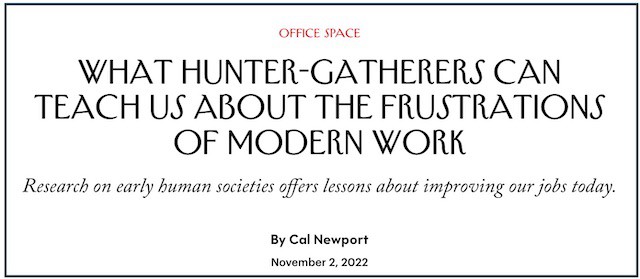
Early in my latest article for The New Yorker I take a closer look at the recent protests waged by Apple employees in response to CEO Tim Cook’s announcement that they had to return to their desks in Cupertino. On the surface, the employees were concerned about losing what they like about remote work. In an open letter addressed to Cook, they cited worries about time lost to commuting as well the difficulty of achieving “deep thought” in a crowded office.
As I write in my article, however, protests of this type might actually be a proxy for a deeper unease:
“Knowledge workers were already exhausted by their jobs before the pandemic arrived: too much e-mail, too many meetings, too much to do—all being relentlessly delivered through ubiquitous glowing screens. We used to believe that these depredations were somehow fundamental to office work in the twenty-first century, but the pandemic called this assumption into question. If an activity as entrenched as coming to an office every day could be overturned essentially overnight, what other aspects of our professional lives could be reimagined?”
If burnt-out employees lose their bid for permanent telecommuting, “the last highly visible, virus-prompted workplace experiment,” the window to push for more serious transformation — the types of changes that can save knowledge work from its current drowning into a sea of distracted busyness — might slam shut.
But as I conclude: “The tragedy of this moment…is how this reform movement lacks good ideas about what else to demand.” We learned through experience that working from home is not enough on its own to cure most of what makes office jobs unnecessarily exhausting, and few believe that four-day work weeks or, dare I say it, quiet quitting are somehow sufficient either. We need bolder notions.





